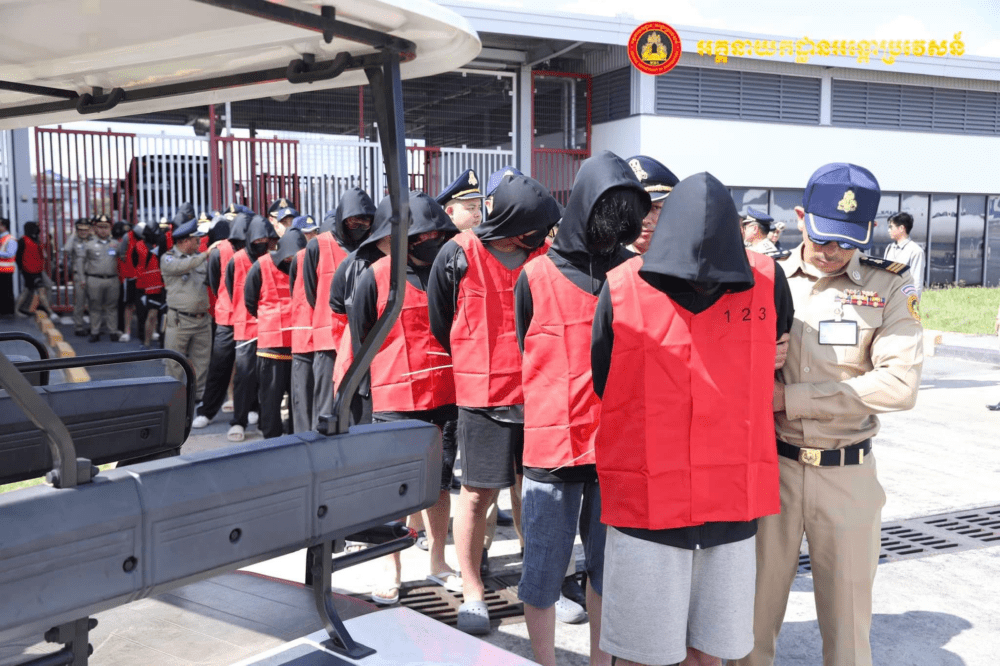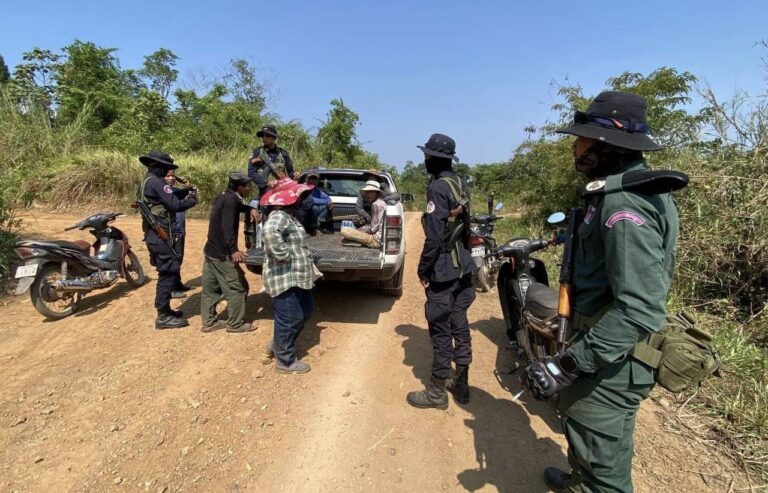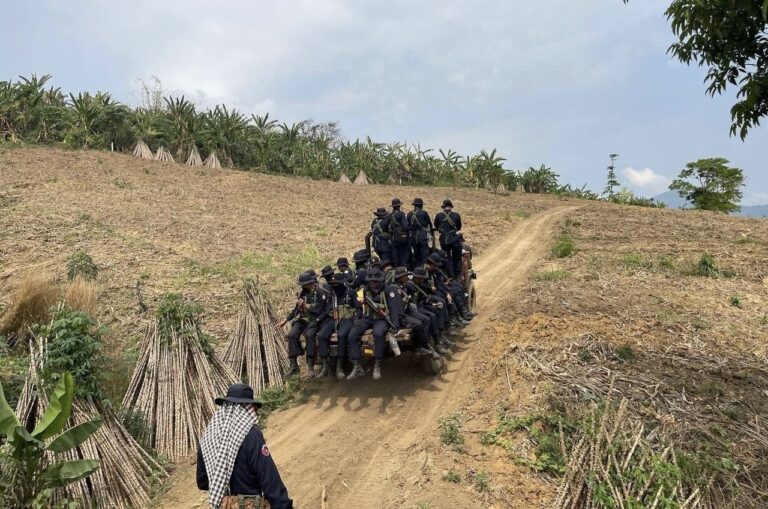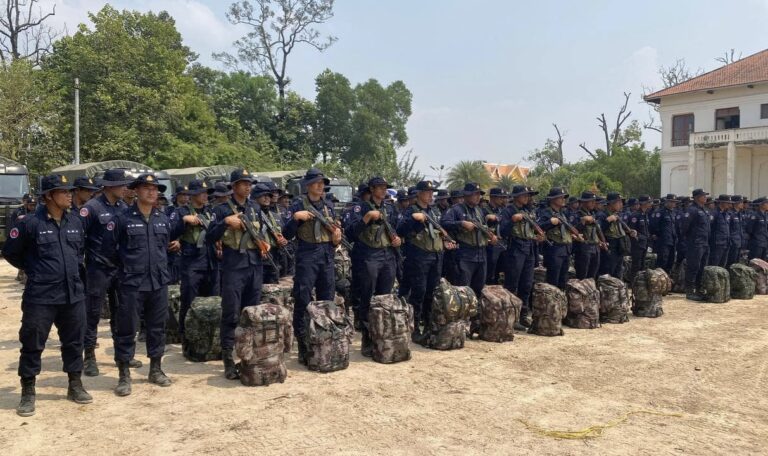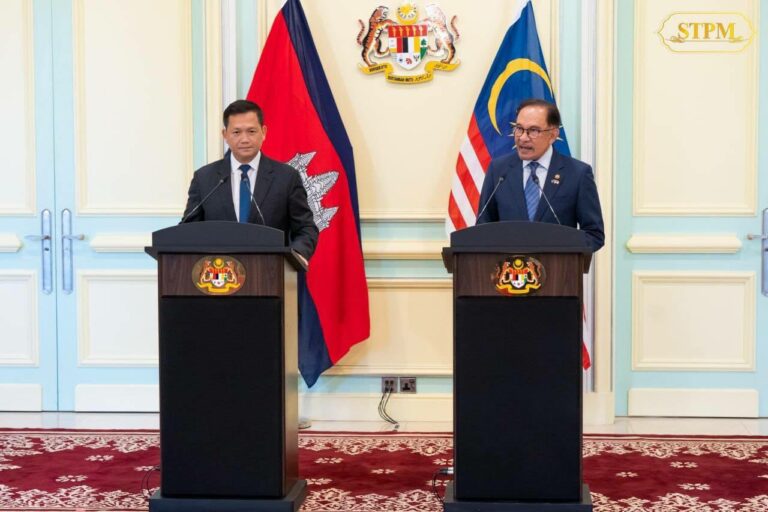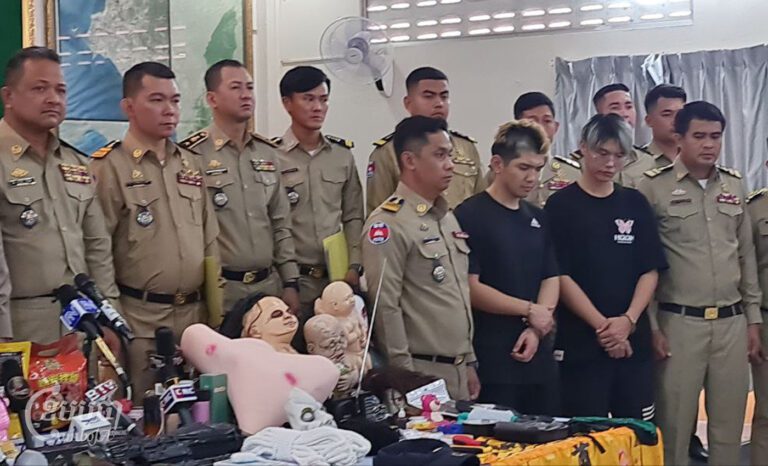In the past few years, integrated crackdowns on human trafficking and online scams have been mounted by the authorities with the help of international organizations but the number of related cases have not abated as syndicates find new ways to thrive.
In 2023, the Ministry of Interior cracked down on 157 human trafficking cases, arresting 185 people, where 37 were women and 11 were foreigners. The authorities also rescued 495 victims in the crackdown, with 131 of them linked to sex trafficking.
In addition, 151 were arrested, including 27 women, four foreigners.
As for human trafficking cases, 26 cases were thwarted, where 34 people were arrested. Ten of them were women, seven were foreigners and 221 victims were released. Some 182 victims were sent to the Ministry of Social Affairs and 313 were sent back to their guardians, according to Touch Sokhak, spokesperson of the Ministry of Interior.
The Interior Ministry collaborated with the Ministry of Foreign Affairs, together with international cooperation, and local and international expertise to help intervene to send 286 Cambodian victims back to Cambodia from abroad. This included 280 women and three underage girls, he said.
A mother of a female victim, who only offered her name as Malay, said the reason she decided to allow her daughter to go to China was because they were so poor. “My daughter told me that she wants to go but I stopped her at first. But, she insisted on going with friends who I know in Phnom Penh. Because our [household] income was low, I decided to let her go.”
Malay’s daughter went to China with a syndicate and married a Chinese man whom she lived with for four years. She was rescued and sent back to Cambodia in 2022. “It has been over one year since she returned to live with relatives in Kratie province. She is now acquiring professional skills to support her future career,” she added.
Malay advised that before any decision is made to send a family member to any country, careful consideration is essential. “As parents, we’ve to think carefully before deciding to send our children to work overseas. We must check if [they are going] there legally or illegally because there can be a lot of problems or risks if they go illegally.”
Moeun Tola, executive director of CENTRAL, said according to the cases they covered, there were seven cases of human trafficking and two online scams in 2023. In the human trafficking case, 53 victims were rescued, where 19 of them were women while the online scam case saw the rescue of 42 victims – 11 were women from Malaysia and Indonesia. In 2024, there were two cases of human trafficking where five female victims were rescued.
Tola stressed that human trafficking cases have not decreased even though the effects of the pandemic have diminished. Cambodia remains in a “worrying situation” due to several factors. “The number of illegal migrant workers has increased, with recruiters going abroad [to get workers] through syndicates and companies.”
As the problem persists, they are exploited, and made to work in unpaid jobs or forced labor. “Sometimes they are terminated by brokers without jobs and income. These are connected to labor trafficking,” he said. The worst is human trafficking in cybercrime. “It is still a hot issue.”
In another human trafficking trend, his organization, which works on those issues, observed that the number of Cambodians who migrate to China to marry Chinese men is high, although there are also victims who marry Hong Kong and Taiwanese men.
“But after the case was publicized, Chinese and Thai authorities tightened their grip on new cases involving the trafficking of Cambodian women through the Vietnamese border at the mainland for export to China.
“We do not know the exact facts but if the victim‘s claim is true, the authorities have conspired to help the perpetrators and are involved in trafficking and corruption,” Tola said. In addition, “we also see victims being trafficked to work illegally. The victims include Thais, Filipinos, Malaysians, Indonesians and Bangladeshis.”
Am Sam Ath, operation director of rights group Licadho, said human trafficking continues to occur, especially sex and labor trafficking, which is most prevalent in China, Malaysia, Laos, and other countries. These involve trafficking by way of fake marriages and fraudulent promises. They are advertised as high-paying jobs, but these are human trafficking tactics where people end up as victims. Chinese nationals are among the highest recorded victims in this category. “This is still a matter of concern.”
He added that Licadho has been playing its part, although the government has done a lot, as well as other civil society organizations, in receiving information and helping victims. “However, this problem has not been resolved. It requires an in-depth study by stakeholders, strengthening of law enforcement and elimination of systemic corruption.”
Sam Ath said in recent years, a US report downgraded Cambodia to Tier Three in the “blacklist of human trafficking cases”, which has “affected our country, especially in terms of investment, tourism and other issues involving development.”
Sam Ath said that in order to eliminate human trafficking, Cambodia must strengthen mechanisms to prevent and suppress such crimes and raise cooperation with relevant institutions, neighbouring countries and internationally to target human trafficking. In particular, there must be training of additional professional officers in the context of modern technology relating to cybercrime and trafficking, which keeps evolving.
In 2022, government figures showed that it rescued up to 8,000 Cambodian victims of human trafficking and rights abuse from eight countries, as labor rights groups called for better protection to prevent trafficking. This was confirmed by Ouch Borith, secretary of state of the Foreign Affairs and International Cooperation when he spoke to the media on March 1. The victims who were saved were from Thailand, Laos, Vietnam, Malaysia, China, Indonesia, Myanmar and Singapore.
Chou Bun Eng, secretary of state for the Ministry of Interior, told CamboJA on Friday that all forms of human trafficking have not abated. “If we talk about the general nature of trafficking, it’s still happening this year, based on the data collected. Labor and human trafficking, and sex trade continues. Sex trafficking is on the rise.”
“I would like to emphasize that human trafficking at this stage, both in Cambodia and in the region, has not reduced, meaning that even if it remains the same or increases slightly, all forms of trafficking will continue. It has not disappeared yet,” Bun Eng said.
Bun Eng said that the Cambodian government and relevant ministries are continuing to study this issue and have made it a priority on par with drugs to prevent and stamp out the problem.
She added that because of the impact, the ministry needs to step up measures and draw up a strategic plan to achieve a highly effective outcome. In the meantime, they will continue to monitor and study the issue. Looking at how trafficking can take on a new image or form, it may continue to cause an impact in the following years, Bun Eng opined.
(Additional report by Va Sopheanut)


